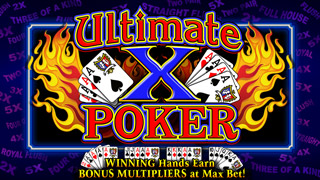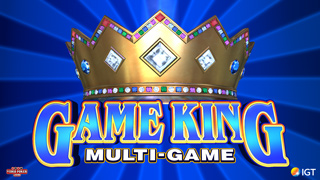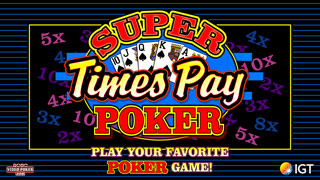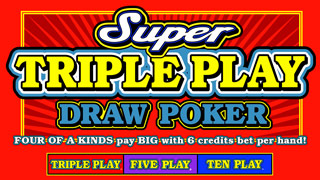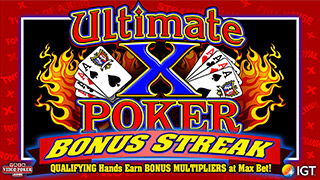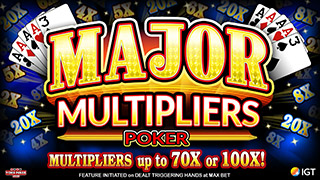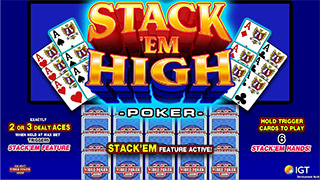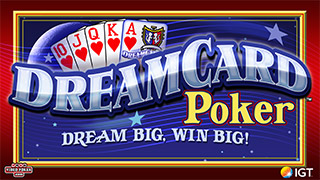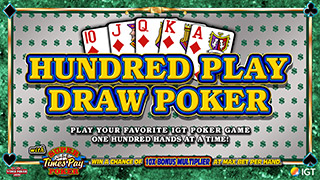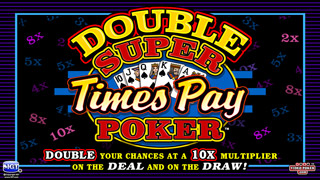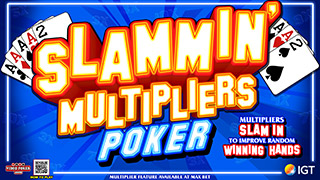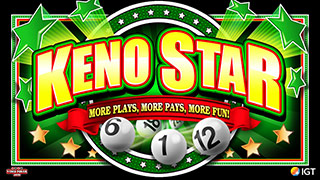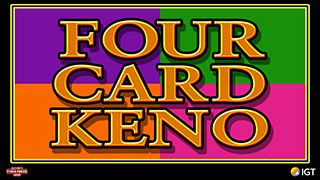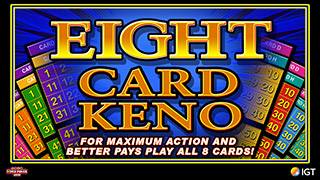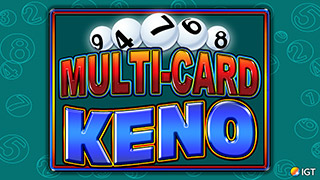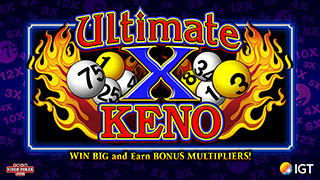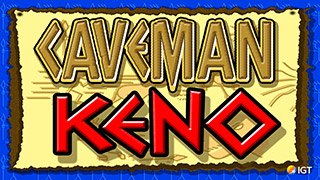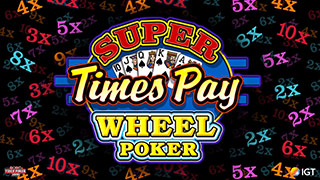What Would It Take???
-
Frank Kneeland
- VP Veteran
- Posts: 762
- Joined: Wed Feb 02, 2011 6:59 pm
What Would It Take???
A question that seems to be on a lot of people's minds is, "Are VP machine fair and random?"I answered this particular question to my own satisfaction in the mid 90's when I had access to the enormous sample of hands that being a team manager afforded me. I do not expect anyone to believe me or take it on faith, and I'm a strong supporter of skepticism and personal discovery, so...It seems like every time someone, anyone, makes a comment about machines not being random or merely shares their beliefs and observations in forum, someone else (myself included) chimes in and points out that their math is flawed, their sample is too small, or their conclusions are wrong. What almost never seems to get discussed is what would be correct math, a large enough sample and a proper method for reaching a good conclusion.No one is going to be able to do it the way I did, so how then???I'd like to start this thread specifically for the purposes of discussing what it would take to prove that machines are not fair and random or visa versa as the case may be:1. What should one record and how?2. What is a large enough sample? (And how to parse the sample.)3. What math should they use to dismiss chance as the cause of their results?4. And perhaps most importantly how do they make the information meet the standard of the scientific method, with peer review and replication of results???If #4 is not met any study done will only succeed in convincing the person doing the study. What's been offered so far hasn't convinced anyone that wasn't already convinced and isn't likely to start convincing people anytime soon. What we need is a simple detailed template of the steps required that anyone can follow and prove it to themselves, one way or the other.I can think of no better way to spend our time on a VP forum than working on this problem and resolving it once and for all.And please note: There should be no need for argument in this thread about whether or not VP machines are fair and random. That would be a conclusion. This thread is not about conclusions, it's about how to formulate them.---------------------I've always found Bayesian Inference goes best with a nice Chianti or Barbera...of course I'm always adjusting that based on new information. ~FK
-
moneyla
- Forum Rookie
- Posts: 46
- Joined: Thu Jun 02, 2011 3:02 am
those who say the machines are not random claim to have inside info that they are not. test all you want -- you can't convince those who say they know otherwise from their inside sources.
-
damule
- VP Veteran
- Posts: 551
- Joined: Wed Jul 09, 2008 4:59 pm
those who say the machines are not random claim to have inside info that they are not. test all you want -- you can't convince those who say they know otherwise from their inside sources.
You're on here now. Sheesh !
You're on here now. Sheesh !
-
moneyla
- Forum Rookie
- Posts: 46
- Joined: Thu Jun 02, 2011 3:02 am
You're on here now. Sheesh !
You're on here now, too!! Damn.
-
BillyJoe
- Video Poker Master
- Posts: 3198
- Joined: Sat Aug 23, 2008 2:00 pm
I think, Frank, it would be a wonderful endeavour. The challenge as I see it, though, would be proving ALL VP machines are random. At best, I could see you gathering data sufficient enough to perhaps prove to skeptics that one particular machine in one casino in one city is random, but how about the machine sitting next to it? The argument can then always be made that casinos are smart enough to not 'fix' all the machines, just some of them. As far as what to count, I would say that 'premium' hands on games that offer a bonus for those hands, like DDB or TDB, would be of the most interest to the readers here. I know that YOU would never play these because of their less than positive EV and volatility , but it would seem to me that most of this VP community does, in fact, play these games. The results of this study would be for the benefit of the larger VP community, right? So, I would say, pick a machine and denomination (single line DDB $0.25, for example), and have the volunteers log the number of games played, and number of quads, SFs and RFs received. I would be happy to participate in any data gathering exercise that you would formulate. I would be a very weak participant, though, since I live in FLA. If you chose a machine in Vegas (a logical choice), it would have to be a 'strip' casino for me. The other possibility would be to gather data on a machine in a more obscure area, where perhaps the temptation of a casino to 'fix' a machine would be greater. A VP machine in a Native American casino, perhaps, since they are more likely to be stand-alone operations. Let me know if I can help.
-
Frank Kneeland
- VP Veteran
- Posts: 762
- Joined: Wed Feb 02, 2011 6:59 pm
those who say the machines are not random claim to have inside info that they are not. test all you want -- you can't convince those who say they know otherwise from their inside sources.
Please at least try to read entire posts before replying. No one is testing anything and no one in this thread is saying that macines are or are not random. I was very clear about this.
The goal is to detail a method people could use to prove it either way for themselves.
-
Frank Kneeland
- VP Veteran
- Posts: 762
- Joined: Wed Feb 02, 2011 6:59 pm
I think, Frank, it would be a wonderful endeavour. The challenge as I see it, though, would be proving ALL VP machines are random. At best, I could see you gathering data sufficient enough to perhaps prove to skeptics that one particular machine in one casino in one city is random, but how about the machine sitting next to it? The argument can then always be made that casinos are smart enough to not 'fix' all the machines, just some of them. As far as what to count, I would say that 'premium' hands on games that offer a bonus for those hands, like DDB or TDB, would be of the most interest to the readers here. I know that YOU would never play these because of their less than positive EV and volatility , but it would seem to me that most of this VP community does, in fact, play these games. The results of this study would be for the benefit of the larger VP community, right? So, I would say, pick a machine and denomination (single line DDB $0.25, for example), and have the volunteers log the number of games played, and number of quads, SFs and RFs received. I would be happy to participate in any data gathering exercise that you would formulate. I would be a very weak participant, though, since I live in FLA. If you chose a machine in Vegas (a logical choice), it would have to be a 'strip' casino for me. The other possibility would be to gather data on a machine in a more obscure area, where perhaps the temptation of a casino to 'fix' a machine would be greater. A VP machine in a Native American casino, perhaps, since they are more likely to be stand-alone operations. Let me know if I can help.
I have no plans to do any studies or to try to prove either side of the argument. I'd just like to provide a "do it yourself" method.
-
feline57
- Senior Member
- Posts: 114
- Joined: Tue Oct 24, 2006 3:36 pm
billyjoe, You raise a very good point about the results of such an endeavor to prove or disprove All VP machines are random. There are thousands of them in numerous casinos in a number of states across the country.
I think for me to believe 100% that VP machines are truly random, I would need to hear it from the programmer who coded the software inside 1 particular machine. If they swear or perhaps take a lie detector test that this one machine is truly fair and random...then I would believe it.
Any other method of people playing X amount of hands, not so sure I would take it as 100% truth or accurate. I don't mean I don't trust the person or people doing the testing just not so sure about the results.
I think for me to believe 100% that VP machines are truly random, I would need to hear it from the programmer who coded the software inside 1 particular machine. If they swear or perhaps take a lie detector test that this one machine is truly fair and random...then I would believe it.
Any other method of people playing X amount of hands, not so sure I would take it as 100% truth or accurate. I don't mean I don't trust the person or people doing the testing just not so sure about the results.
-
moneyla
- Forum Rookie
- Posts: 46
- Joined: Thu Jun 02, 2011 3:02 am
Sorry Frank but what you are proposing is just "busy work" and I certainly don't have time for busy work. I trust that the machines are fair and random. If you want to perform a public service, then by all means please go after those who are making the claims that the games are rigged and that there are secret handshake deals within the gaming industry to allow the games to be rigged and prove that they are right or they are wrong. THAT would be a public service. The busy work I don't need. Sorry to be blunt but you don't have to prove to me that wheels roll better than cubes.
-
brmcc74
- Senior Member
- Posts: 295
- Joined: Wed Dec 30, 2009 7:19 pm
Frank= Not sure that you could prove it. Most machines dont pay out at their advertised amount anyway. By this I mean that a pay table of say JOB 99.54% wouldnt pay off that exact amount. 99.54 is the mean for the machine. This would be for the life of the machine. What is the "life" of a machine? Who knows but I am convinced that the amount returned will almost always be higher or lower than advertised. This would be due to randomness. In order to achieve the mean of a pay table, the player would have to be a perfect hold player anyway.
Maybe the question should be.............What personal experiences have occured for an individual to believe that machines arent random?
Maybe the question should be.............What personal experiences have occured for an individual to believe that machines arent random?



